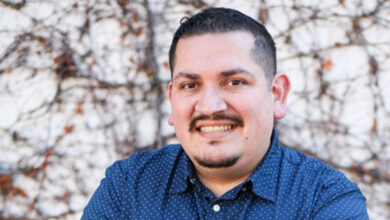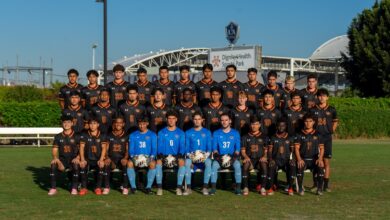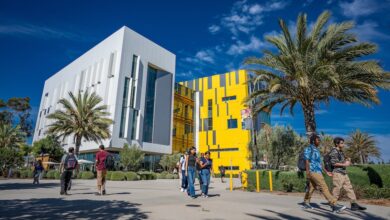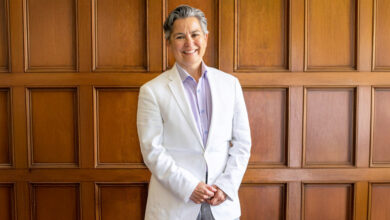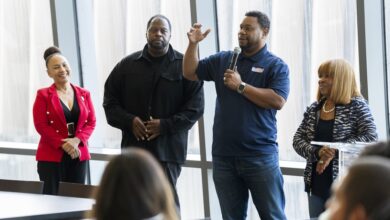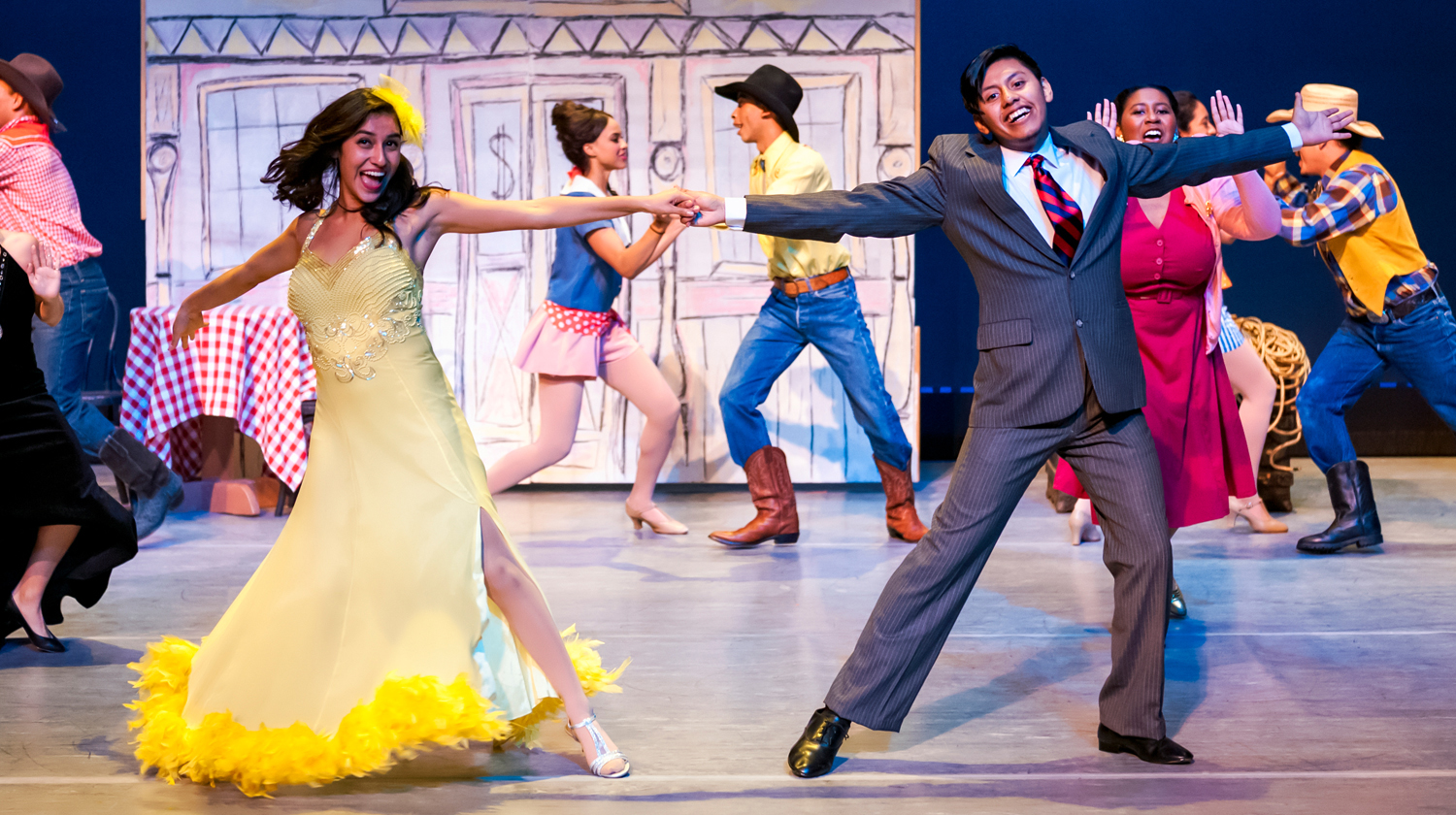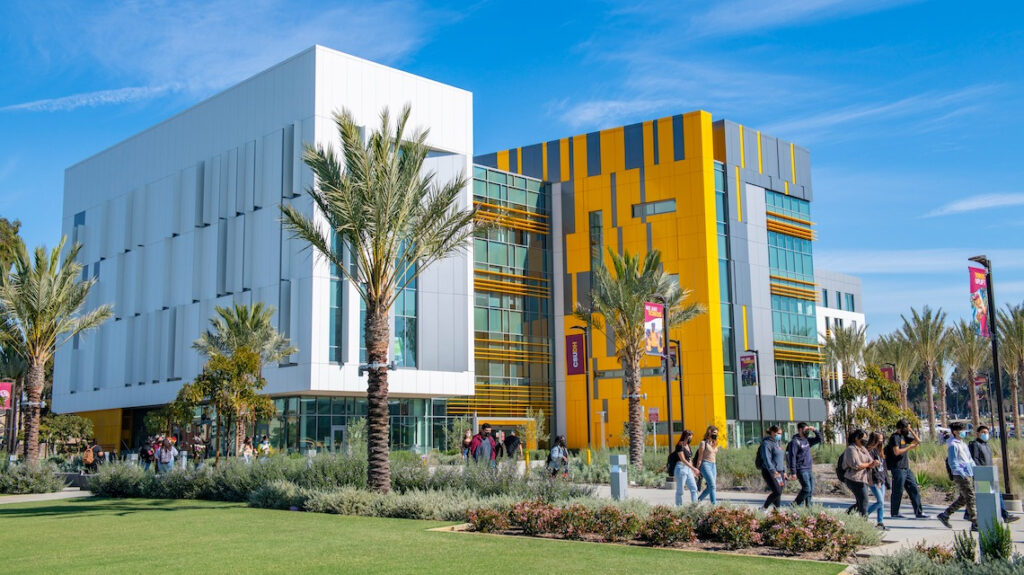
CSUDH welcomes 19 new faculty members this fall, and is introducing them to the campus community. Here, meet faculty from the College of Arts and Humanities, the College of Business Administration and Public Policy, and the College of Education. Part two of this series will feature new faculty from the College of Health, Human Services, and Nursing and the College of Natural and Behavioral Sciences.
College of Arts and Humanities
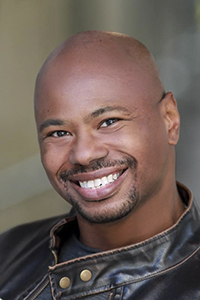
Lynn Gary Atkins, Jr., Assistant Professor of Choral Music/Voice Area Coordinator
Academic Background:
DMA, Choral Conducting Performance, Pedagogy, and Literature, James Madison University
Professional Biography:
Hailed as a voice with “rich vocal color and appealing quality,” tenor and conductor Atkins is a proud son of the Jersey Shore. He is known for his range of expression and clarity on the podium as well as a tenor in solo and choral ensemble performance. During the 2019-2020 school year, he was honored to be part of the partnership between the New Jersey Department of Education and Garden State Equality’s team of teachers to pilot teach and develop the NJ LGBT Inclusive Curriculum in Visual and Performing Arts. He is also artistic director of the L.A. Bronze Handbell Ensemble.
Research Interests:
J. S. Bach, African American spirituals, American music theatre, LGBTQ inclusivity in the choral music classroom
Why This Subject Matters:
“Choral music is a special area of the music family because it comes from an instrument that cannot be replicated: the human voice. Each person is different, thus no one voice is similar outside of the classification of soprano, alto, tenor, or bass. When all of these differences combine a sound is created that is unique to the environment is lives in.”
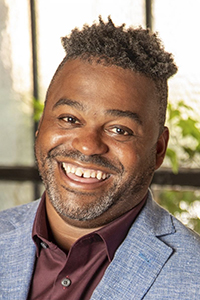
Larry R. Hygh, Jr., Assistant Professor of Communications
Academic Background:
EdD, Organizational Leadership, Pepperdine University
Professional Biography:
Hygh was previously a fulltime lecturer and the internship coordinator at California State University, San Bernardino (CSUSB). Prior to CSUSB, he was the senior communications manager for the Black AIDS Institute, the only national HIV/AIDS think tank focused exclusively on Black people. Hygh spent more than 20 years as the chief communications officer for The United Methodist Church (UMC) in five different regional offices in the United States, and the international mission agency when it was based in New York City.
Research Interests:
Nonprofit communications, public relations and advertising, African American leadership
Why This Subject Matters:
“Communications is at the intersection of every profession. Successful communication is at the heart of organizational and personal success across fields.”
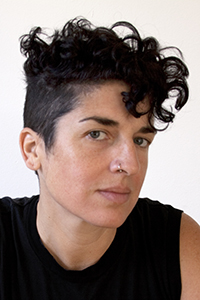
Jimena Sarno, Assistant Professor of Art
Academic Background:
MFA, Art with Critical Theory Emphasis, UC Irvine
Professional Biography:
Sarno is an interdisciplinary artist and educator from Buenos Aires, Argentina. With a focus on spatial and sonic experience, she works across a range of media including installation, sound, video, text and sculpture. Her work has been exhibited in solo and group exhibitions at MASS MoCA, Vincent Price Art Museum, Clockshop/LASHP, 18th Street Arts Center, LACE, Visitor Welcome Center, Grand Central Art Center, Museum of Latin American Art, The Mistake Room, Human Resources, PØST, UCI Contemporary Art Center, Control Room, San Diego Art Institute, The Luminary, Centro Galego de Arte Contemporánea de Santiago De Compostela and Fellows of Contemporary Art, among others. She is a recipient of the 2021 California Arts Council Individual Fellowship, the 2015 California Community Foundation Fellowship for Visual Artists, and a 2019-2023 Lucas Artist Fellow in Visual Arts at Montalvo Art Center.
Research Interests:
Sarno’s practice encompasses research and production as an exploration of power relations and consensus. She is interested in how political constructs become normalized and internalized, shaping how we understand the world and our place in it. Citizenship, discipline, labor and security culture are recurring themes. With a background in craft, the economy and politics of production are essential to her work. Her process is always concerned with labor, learning, and self-sufficiency, not only as survival methods but also as empowering modes of self-determination.
College of Business Administration and Public Policy
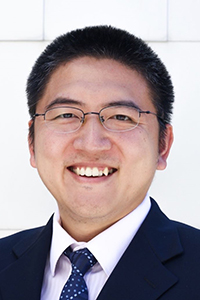
Xun Xu, Associate Professor of Operations Management
Academic Background:
PhD, Operations Management, Washington State University
Professional Biography:
Xu worked for seven years as a faculty member at California State University, Stanislaus. He has published over 60 papers, is editor-in-chief of the International Journal of Logistics Economics and Globalisation and is the managing editor of the International Journal of Information and Decision Sciences. In addition, Xu serves as an associate editor or editorial board member for several journals and an ad-hoc reviewer for various journals.
Research Interests:
Operations management, supply chain management and coordination, supply chain finance, e-commerce, sustainability, data and text mining, and hospitality and tourism management.
Why This Subject Matters:
“Operations management is the foundation of business success. It cultivates optimization and decision-making skills.”
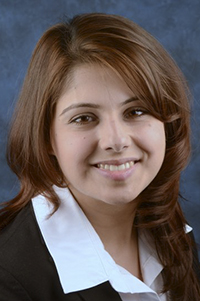
Saahir Shafi, Assistant Professor of Public Administration
Academic Background:
PhD, Public Administration, Penn State Harrisburg
Professional Biography:
Prior to joining CSUDH, Shafi served as an adjunct faculty member at Penn State Harrisburg while pursuing her Ph.D. She also currently serves as a board member for the American Society of Public Administration (ASPA) Keystone Chapter.
Research Interests:
Shafi’s research focuses on the intersection of comparative public policy and public health, with additional interests in governance and political science. The bulk of her research concentrates on understanding the dynamics of crisis decision-making, disproportionate policy responses, and healthcare policy issues including COVID-19, drug policy, and smart home technology for assistive living. Her work incorporates aspects of both behavioral and institutional insights into public policy and governance. Her research empirically evaluates policy overinvestment and underinvestment in times of crisis, focusing on intentional policy design and errors in information processing at the individual and subsystem level, and institutional friction at the macro level.
Why This Subject Matters:
“As a growing area of research, the body of work on disproportionate policy dynamics recognizes the role that political rhetoric plays in the framing of issues and construction of policy images that support preferred political vantage points. I examine how disproportionate policy responses are framed by policymakers to garner support for policy issues that are characterized by sharply divided political vantage points. My research evaluates how political rhetoric differs in periods of policy stability and punctuations, with particular focus on how rhetoric changes as issues move on or off the agenda.”
College of Education
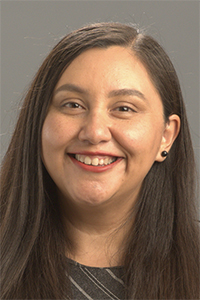
Margarita Landeros, Assistant Professor of School and College Counseling
Academic Background:
EdD, Educational Leadership, Administration and Policy, Pepperdine University
Professional Biography:
Landeros previously served as a counselor support specialist at Green Dot Public Schools (GDPS) for three years, where she coached and supported school counselors, developed and facilitated professional development, and focused on bolstering school counselor effectiveness. She was also simultaneously a part-time instructor for the UCLA Extension College Counseling Certificate program. Landeros is actively involved in different communities, including being president of the UC Berkeley Chicanx Latinx Alumni Association (CLAA), an assembly delegate for the Western Association for College Admission Counseling (WACAC), a co-chair for the Greater Los Angeles National Association for College Admission Counseling (NACAC) College Fair, and an annual meeting reviewer and session chair for the American Educational Research Association (AERA).
Research Interests:
School counselor leadership, data-driven school counseling, counseling in charter schools, college access for students underrepresented in higher education, college access for students underrepresented in higher education
Why This Subject Matters:
“School counselors are pivotal to serving students holistically in our educational system and understanding how their leadership plays a role in the overall structure of a school helps bolster student success and outcomes.”
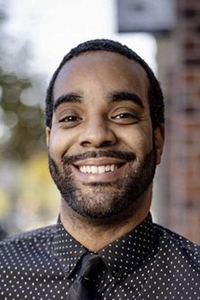
Kirk D. Rogers, Jr., Assistant Professor of Teacher Education
Academic Background:
PhD, Education, UC San Diego
Professional Biography:
Rogers is a 2021 Ford Dissertation Fellow whose dissertation research identified math as a major gatekeeper for BIPOC students interested in pursuing STEM careers. He taught middle school math and science in Atlanta, Ga., for six years and continues to work with youth, teaching at a STEAM camp in the summer months. His future goal is to make the P-20 STEM pipeline more inclusive by pushing back against traditional notions of who can “do” STEM. Rogers’ lifelong career goal is to dismantle the STEM field such that the larger community begins to rethink STEM, ultimately creating more diverse, inclusive, and culturally relevant STEM spaces; spaces that value the strengths and unique talents of BIPOC students, women, and other historically marginalized groups. He is eager to continue collaborating on research connected to equity and social justice in STEM at the Center for the Transformation of Schools.
Research Interests:
STEM equity for Students of Color, cultural relevance and social justice in STEM education
Why This Subject Matters:
“In addition to shifting the culture in STEM fields, the field must center the lived experiences of historically marginalized communities. Cultural relevance and social justice matter in STEM education because historically marginalized students should be able to feel that STEM is relevant to their everyday lives and in line with their lived experiences so that they may begin to feel they “belong” in STEM spaces as their true authentic selves. STEM is not neutral, nor is it without bias, so unpacking the history of white supremacy embedded within the STEM field is of utmost importance as well.”

